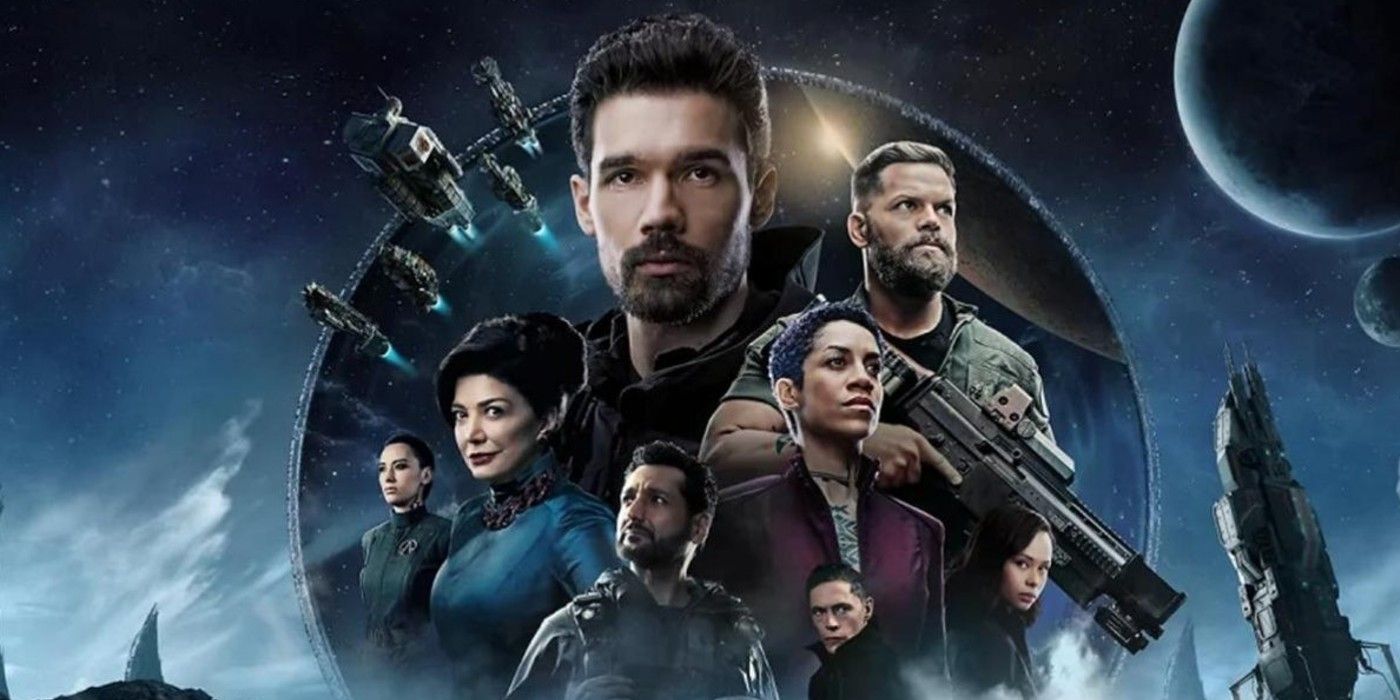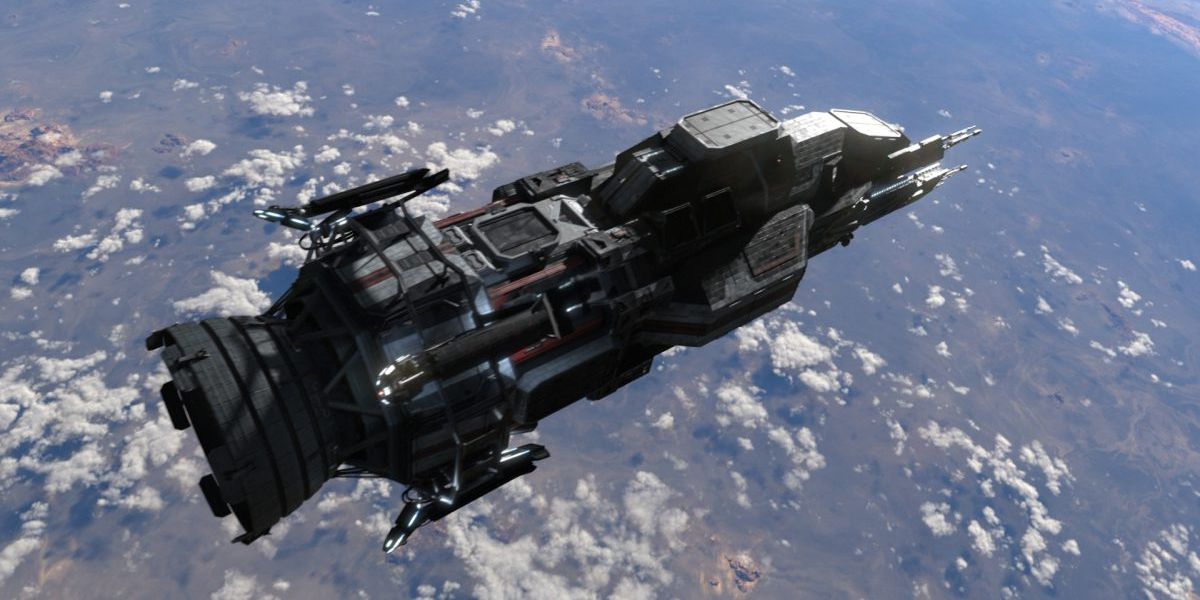A great deal of, if not most, science fiction media tends to fall on either end of a specific spectrum: optimism versus pessimism. Star Trek famously depicts a utopian future, one where humanity has united to explore the universe. Many franchises created in the modern day, meanwhile, lean towards the dystopian and the bleak, weaving cautionary tales about future technology and what it can do in the wrong hands. And in either case, the technological advances that take place in sci-fi universes tend to be ones that we today can only dream of. Traveling hundreds of lightyears in mere seconds; human cloning; suspended animation for hundreds of years — all of these are far beyond our grasp right now.
Of course, that's part of the fun of science fiction: to imagine a universe so different from our own. But it's equally intriguing to wonder: looking realistically at the trajectory we are on, where will humanity be a few centuries from now? What technologies could we feasibly develop in the next three hundred years, and how will they affect our society? That's the approach that The Expanse takes in its speculation on the future of humankind. Not only is it one of the most scientifically realistic shows on TV, but the characters and their actions throughout the story lend it a sense of believability that make it feel uniquely immersive.
The Technology
Many purists would argue that it would be a mistake to call The Expanse hard sci-fi, and they're not wrong. Hard sci-fi deals only in what we know is possible, according to the laws of the universe as we understand them. The protomolecule, the alien substance at the heart of all the conflict in The Expanse, is uncharted territory. Speculating on the behavior of an extra-solar entity is beyond the scope of hard sci-fi, meaning that the show does not quite fit into this genre.
The technological innovations of The Expanse, however, are another story. The story takes place about three hundred years into the future, and for us watching in the 21st century, humanity's advances feel realistic for that timeframe. In the 24th century, humans don't have faster-than-light travel yet, but we've improved our spaceships so that traveling between planets takes days instead of years. We've developed medical technology to prevent cancers and counteract the effects space travel has on the body, but they aren't magic bullets; there are side effects and drawbacks. For example, after being exposed to lethal radiation, Holden receives a permanent implant that will keep the radiation sickness at bay, but renders him infertile. Naomi, in order to survive Earth's levels of gravity, must take drugs with painful side effects.
Naomi's approach to dealing with high gravity points to another area of realism in The Expanse: the difficulties that result from growing up away from Earth. Naomi is a Belter; she grew up on asteroids or the small moons of Jupiter or Saturn, astral bodies which have much lower gravity than the Earth. And she's not the only major character like this, either. Gunny, a sergeant in the Martian navy, visits Earth in Season 2, experiencing higher gravity than she's ever felt in her life. Both need to take medication in order for their bodies to handle the pressure that they aren't used to; both struggle to adjust to the sudden increase in the weight of their bodies.
Gravity isn't the only thing that the outer planets lack, either. The Expanse makes a point of touching on how those living on Ceres, Ganymede, and other outer planets keep their resources from running dry. Prax, a botanist from Ganymede, details how the research station created its own ecosystem, allowing residents to grow food and recycle water. James Holden's ship at the start of the series, the Canterbury, was an ice freighter; its sole job was to bring essential water to the Belt, and life there was disrupted when the ship was destroyed in the middle of a run.
Many sci-fi stories tend to brush over questions of how being in space affects the human body, either with vaguely explained technology or by ignoring them entirely. That isn't necessarily a bad thing; sometimes, those questions simply aren't relevant to the story. The Expanse, however, centers on the concept of a humanity that has spread throughout the solar system. It's central to the narrative for it to explore the hardships of life away from the planet that humanity evolved to live on. It doesn't brush over the hard questions of how a space-faring, Mars or Belt-dwelling life would affect a human being. And that goes beyond just the physical, into the psychological and political.
The Characters
The world of The Expanse is neither a utopia nor a dystopia. There are some people who are well-off, living in luxurious mansions on Luna; others struggle to survive in the Belt. Many are somewhere in the middle — living off government assistance on Earth while they wait for the employment lottery to call their names; serving in Mars' prestigious navy; or doing scientific research in the Outer Planets.
Those who live on Earth, Mars, and in the Outer Planets all have different philosophies on life, heavily influenced by the environments in which they have been raised. Those in the Belt are often neglected and treated as commodities by the Inner Planets, and struggle to get by; this has shaped a culture of tough, sometimes ruthless survivors who dislike relying on others, as Belter fighter Drummer often shows. Mars' mandatory military service and goal of creating a paradise has bred a culture that prides themselves on sacrifice, diligence, and national unity, traits that Gunny exemplifies. Many Earthers, who grew up in overcrowded cities, learned to fend for themselves from an early age, like Amos.
The show features major characters from all of these backgrounds and more — and as the story progresses, it shows how they change. Avasarala begins as someone who always puts Earth first, but as she learns of the protomolecule and the threat it poses, her greater concern becomes protecting humanity as a whole. Main protagonist James Holden begins his story as an idealist, determined to see the good in everyone — and although he maintains that sense of hope throughout the story, he learns that sometimes the good is just not there.
Even the antagonists, no matter how despicable, have their sympathetic moments. Nobody is evil for the sake of it, but plenty of people do evil things for what they feel is the greater good. Sadavir Errinwright, for example, is a consistent villain throughout the first few seasons. Yet, he is not seeking personal gain. He wants to do what he believes is in the best interests of Earth — even if that means annihilating Mars. Jules-Pierre Mao, meanwhile, does want power and prestige, but he also believes his research can protect humanity from any threat the protomolecule poses. As Holden witnesses over and over, doing the right thing is infinitely more complex than it sounds. It is these clashes between different people's ideas of "the right thing," and how to utilize the technology available to them, that leads to The Expanse's conflicts.
Optimism, Pessimism, and Realism
It's fascinating to imagine a utopian world like that of Star Trek, where Earth and other planets are united under the common goal of exploration and discovery. It's equally interesting to imagine a world where technology is controlled by the evil and corrupt, resulting in a dystopia where a few heroes must rise up. But in reality, the most likely scenario is neither extreme.
Science fiction is all about what-ifs. What if new technology came into our grasp? What would that look like, and what would we do with it? Would there be drawbacks, and if so, how would we work around them? Would we use those advances to explore, to advance our society and make life better for all humanity? Or would we use it to destroy each other and the very world we inhabit? What advances will we make as a species, and will they bring us together or tear us apart? The Expanse's answer to these questions is: all of the above. Humanity isn't inherently evil, nor is it inherently good. In The Expanse, nothing is black and white when it comes to making the right decisions — just like in real life.




